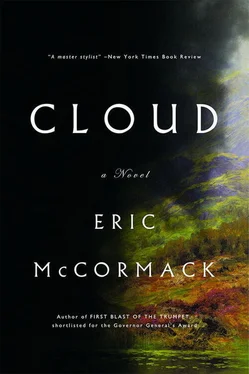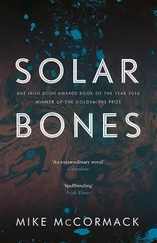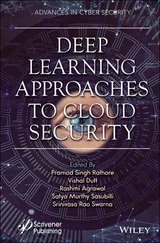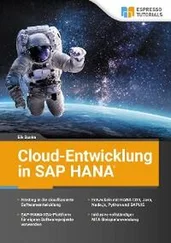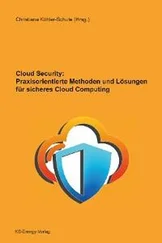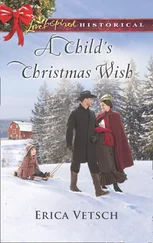It would be fair to say he didn’t sound very enthusiastic.
THAT WAS THAT — for the moment — so far as my own efforts at trying to find out something about The Obsidian Cloud were concerned. Coming across it in the Bookstore de Mexico was the highlight of that trip. Like any book lover, I was curious to know whether there was even a grain of factuality behind it.
If I’d been a credulous man, I might almost have believed that The Obsidian Cloud had singled me out, lured me into that bookstore to seek shelter from the tropical downpour, so that I might discover it and attempt to resolve its mysteries.
I wasn’t that credulous. But my heart really did leap at the unexpected sight, in such an alien setting, of that familiar name— Duncairn — and with it, the recollection, for the thousandth time, of a thing that happened to me in that little Upland town when I was barely twenty-one. Comparing that boy with the man I’ve since become is always disorienting for me — as it must be for most people thinking back to when they were young — like watching two movies overlap in some dizzying way. But I still feel a great sympathy for that earlier version of myself, who spent only a few ecstatic months in the little town, then slipped away on the train at dawn one foggy morning, broken-hearted and mystified.
I’d told the curator that after graduating from Glasgow University I’d lived in Duncairn a short time and that I’d travelled quite a bit around the world since. I didn’t confess to him that I sometimes felt the ups and downs of my life were just about as baffling as the connection between dreams and reality. That may have been what caused me to react to this particular book in such an intimate way — as though the book and I were, somehow, intertwined. Isn’t that the way it is for all readers, when it comes to certain books? But I certainly hadn’t the slightest notion that in attempting to solve the riddles The Obsidian Cloud presented, I’d find the answer to the great mystery in my own life.

The burden of memory seemed to me then as a great boulder to be carried over an endless quicksand.
Tancrede Arnold
Where I was born it was the custom, when a baby was nine months old, for the mother to rub vinegar on her breasts. That was the tried and tested method for weaning babies away from breastfeeding, and I’ve often wondered if my mother used it on me. Not that I’d have dreamt of asking her. But I’ve always disliked the smell of vinegar.
I often wonder, too, if an experience like that might lead someone to expect even the purest love to end in bitterness.
THE CIRCUMSTANCES of my birth were, no doubt, peculiar: I was born outdoors, into a chilly night and a fog, in an area of Glasgow called the Tollgate, a slum even the police tried to avoid going into.
The month was December and the fog was caused mainly by smoke from the steelworks and shipyards that lined the banks of the River Clyde. The river itself was polluted from their poisonous drainage. Some of the old people claimed that one winter night long ago it actually caught fire and looked just like lava flowing out of a volcano, the way it does in movies. In summer, children who went into the river for a swim (as they sometimes did in the rare spells of warm weather) would lose a layer of skin a few days after.
On that December night, the foggy night of my birth, my parents left their apartment in the row of tenements they lived in and set out for the doctor’s surgery. They wanted their first child, at least, to be born in a clean place with a doctor and a nurse present, and they’d saved up the money needed. Mainly, children in the Tollgate were born in metal bathtubs in their apartments. If the mother received any assistance, it would be from an experienced family member.
But my parents had decided on another method, especially since they had no family member to rely on. So they were walking to the surgery two miles away, as fast as they could, for my mother had felt stirrings and was afraid something was going wrong.
Of course, they didn’t make it. My birth took place right there on the grime of the sidewalk, with my inexperienced father acting as midwife. There were one or two spectators who’d no experience either, so they couldn’t help. It seems I wasn’t keen on coming out and nearly killed my mother by my struggle to stay inside her. At last I did make my exit into the colder womb of the fog.
I discovered these bare facts from my parents years later. Naturally, I’ve no memory of the event myself, though I often think it must have had some effect on me.
IN MANY WAYS we weren’t a typical Tollgate family: I was an only child, for example, whereas most of the other families around were big. My mother would have liked a lot of children, too. Again, it wasn’t till I was much older when I realized that the damage I’d done to her by my struggles on the sidewalk had probably made her incapable.
She was a short, solid woman, and she didn’t have a job outside the house — few women at that time did. She had jet-black hair which was usually tied up in a bun, but at night when she let it down, it was the most exotic, beautiful sight. I loved to touch it, and when my father would compliment her on it, her face would turn pink with pleasure.
She was one of those people whose eye colours don’t match. Her right eye was blue, her left was green. Depending on which eye you looked at, it was as though two different people were in there. The woman behind the blue eye looked dreamy and happy, the one behind the green one often seemed worried and sad. When I grew older and pointed this out to her, she said there might be something to it: that often, for her, the world was a place of beauty and hope, but at other times, everything seemed black and desolate. She’d never told this to anyone else in the world except my father, and now me.
AS FOR MY FATHER, he was a thin man with thin hair, a hollow chest, and slightly tremulous hands. Even when he was only in his mid-thirties — I was ten years old by then — he looked older than most men of his age. He had a natural gift for numbers and was a bookkeeper at the offices of Random Mill, where steel plates were made for the shipyards. The mill’s huge chimneys belched smoke day and night.
He himself was a heavy smoker. Because of his quivering hands, he often had trouble guiding the cigarette to his mouth. Once he got it in he’d leave it dangling there till it was almost smoked out and the tip was a fraction away from his thin lips. Then he’d spit it onto the floor and stamp on it with his shoe. “Gotcha!” he’d say, as though it was one of the cockroaches that infested these tenements.
From living with him, I learned young, without anyone ever saying it outright, that it’s foolish to read too much into people’s appearances. Sometimes, the most unprepossessing of faces— like his, for example — belong to the kindest, smartest people. And vice versa.
He coughed a lot, even when he talked — which was usually to make wisecracks or disagree with what most people believed in. He also loved sitting by the fire, reading, as did my mother. They couldn’t afford to buy books, but borrowed them by the dozen from the public library. Long before I went to school they taught me the alphabet and showed me how magical combinations of these little marks could create in my mind the most fascinating images and people and events.
It was through my parents, then, that I too came to love reading.
Читать дальше
